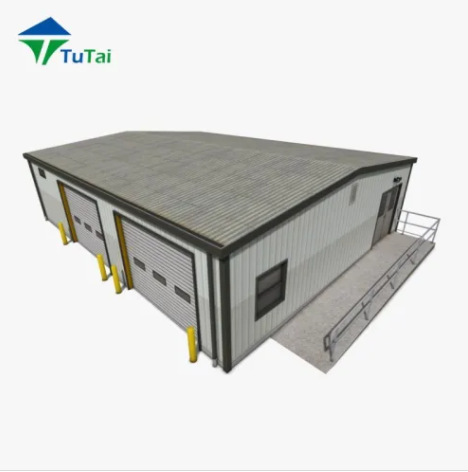What are the advantages of a steel structure warehouse?
In the realm of modern industrial and commercial architecture, steel structure warehouses have gained immense popularity due to their numerous advantages. Offering durability, versatility, and cost-effectiveness, these structures have become a preferred choice for businesses around the world. In this article, we delve into the key advantages of a steel structure warehouse, highlighting the reasons why it has become a go-to solution for storage and logistics needs.
Strength and Durability:
One of the primary advantages of a steel structure warehouse is its exceptional strength and durability. Steel is known for its high tensile strength, enabling it to withstand heavy loads and adverse weather conditions. It resists corrosion, pests, and fire, ensuring a robust and long-lasting structure that protects valuable goods and equipment.
Quick Construction:
Steel structure warehouses can be erected in a relatively short period compared to traditional construction methods. With pre-engineered components and efficient assembly processes, the construction time is significantly reduced. This allows businesses to have their storage facilities up and running quickly, minimizing downtime and maximizing operational efficiency.
Design Flexibility:
Steel structures offer immense design flexibility, allowing businesses to tailor their warehouses to specific requirements. From large clear-span spaces to accommodate bulky items to customized layouts for efficient storage and logistics, steel allows for versatile designs. It can be easily modified or expanded in the future to adapt to changing needs.
Cost-Effectiveness:
Steel structure warehouses offer cost savings in multiple ways. Firstly, the construction process is faster, reducing labor costs and overhead expenses. Secondly, steel is a highly efficient material that minimizes waste during manufacturing and construction. Additionally, the durability of steel structures reduces maintenance and repair costs over the building's lifespan.
Sustainability:
Steel is a sustainable material, as it is 100% recyclable and can be reused indefinitely without losing its properties. Constructing a steel structure warehouse contributes to environmental conservation by reducing the demand for new materials and minimizing construction waste. Steel structures can also be designed to incorporate energy-efficient features such as insulation and natural lighting, further enhancing their sustainability.
Expansion and Adaptability:
Business needs evolve over time, and steel structures offer the flexibility to expand and adapt to these changes. Whether it's increasing storage capacity, accommodating new equipment, or reconfiguring the layout, steel warehouses can be easily modified without compromising their structural integrity. This adaptability provides businesses with long-term value and future-proofing capabilities.
Lower Insurance Premiums:
Due to their fire resistance, durability, and reduced risk of damage from natural disasters, steel structure warehouses often benefit from lower insurance premiums. Insurance providers recognize the inherent advantages of steel structures, leading to potential cost savings for businesses.
Conclusion:
The advantages of a steel structure warehouse encompass strength, durability, quick construction, design flexibility, cost-effectiveness, sustainability, expansion capabilities, and lower insurance premiums. These benefits make steel structures an attractive choice for businesses seeking efficient, reliable, and adaptable storage solutions. By harnessing the inherent qualities of steel, companies can create warehouses that optimize operations, protect valuable assets, and support their long-term growth and success.



